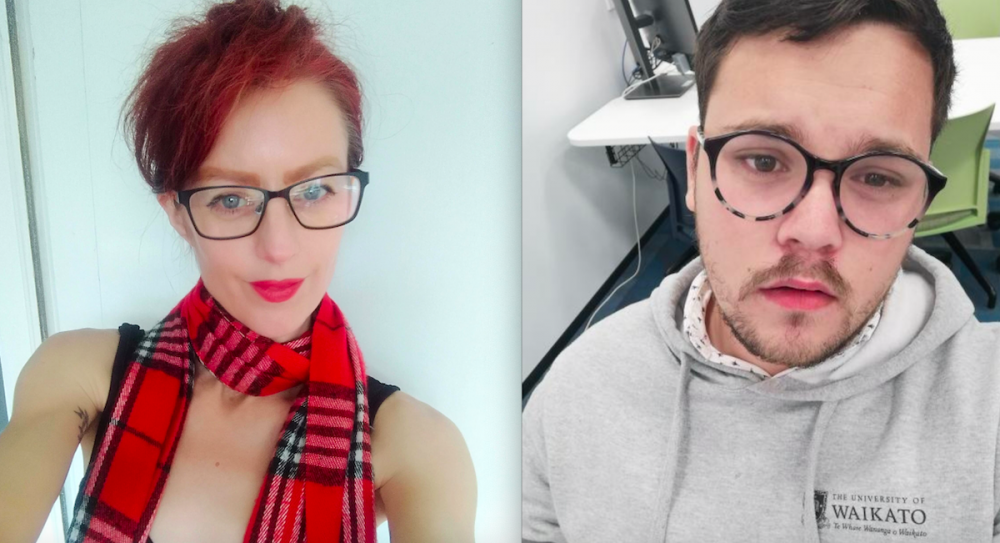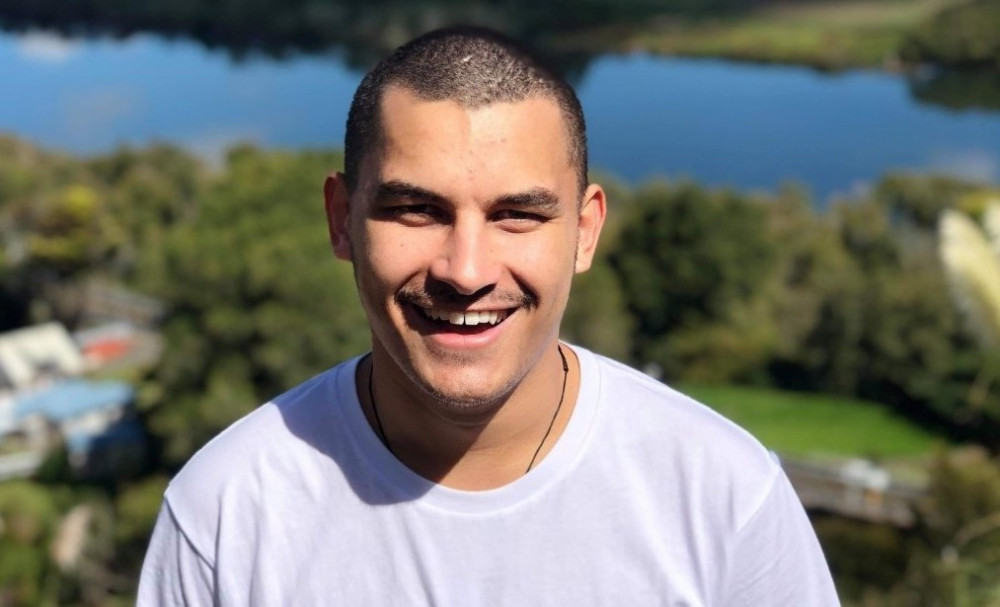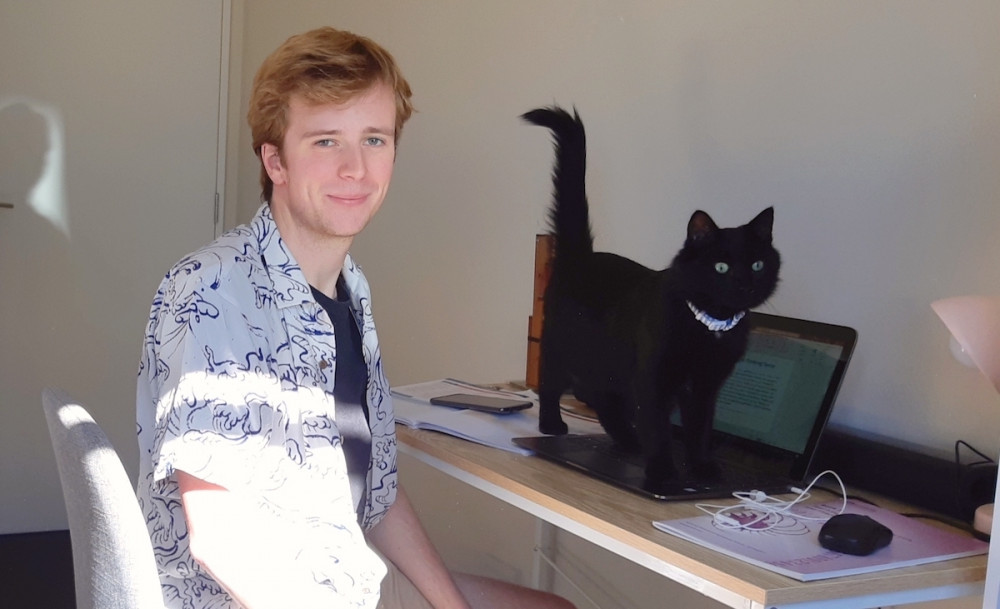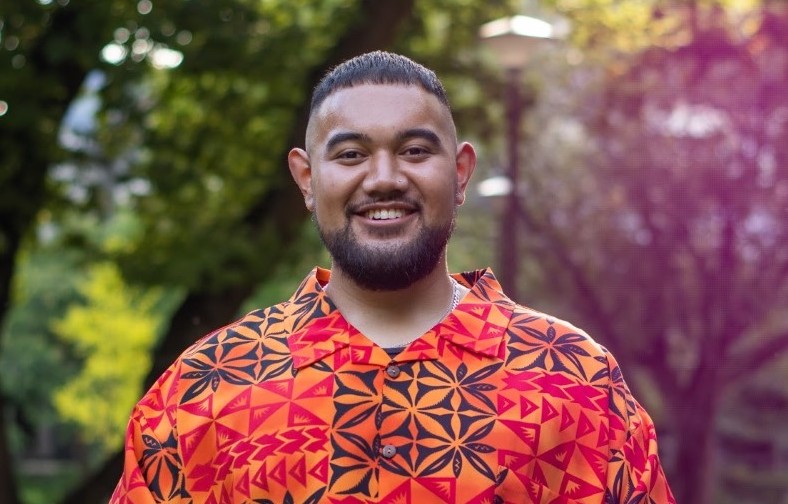Covid-19 has made life harder for many New Zealanders, but students remain the only group whose support package is just more debt. Re: spoke with eight students around the country who are hoping the government has more planned to help them keep studying during a pandemic.
Covid-19 has forced us to recognise how vital essential workers are for the survival of any society. But what if the next line of defense doesn’t have enough support to get qualified?
Re: spoke with some of the students battling hardships to graduate and work in essential workforces like heath and education. With Covid-19 making study more difficult than usual, they say the Tertiary Support Package the government announced on Tuesday April 14 just isn’t enough.
The $98 million package aims to “assist students financially to continue their studies” during the pandemic by upping the loan students can use for course-related costs from $1,000 to $2,000. But this is meant to be spent on study supplies, not essentials to live like food or rent. It also is only available for full-time domestic students, leaving part-timers and international students in the lurch.
The package also allows students whose study has been halted by Covid-19 to access student loan payments and still be eligible for free-fees tuition.
Isabella Lenihan-Ikin, president of New Zealand Union of Students' Association (NZUSA) says offering students more debt does not address poverty and study hardships that have only increased during the pandemic. “Given that they are the next generation of the essential workforce it is important they are encouraged to stay in study. But the limited financial support from the government makes this a hard message to spread.”

Donna Boustead, left and Sian Downes, right, are balancing study with being a solo mother.
Solo parents are missing out on support because they choose to study
Donna Boustead, 42, is a full-time nursing student and a solo mother. With too much on her plate to work part-time, she relies on StudyLink’s student allowance to support her and her daughter. Unlike living costs, student allowances do not need to be paid back but they are only available to roughly 33 percent of students who meet the strict financial criteria.
She tells Re: she has always struggled to pay bills which means she and her 11-year-old daughter Ruby live week by week. Some weeks are harder than others when after paying her bills, there isn’t enough left to feed her an adequate meal or buy her necessities like clothing or school supplies.
Donna’s situation counters the myth that all students need to worry about are assignments. As she crams for an exam late at night, she is also wondering how many lights she has to turn off to save enough money on power.
“I'm struggling to focus on my studies because I worry about the increase in utility bills. I worry if my child will become sick with the winter months approaching because I have to try to avoid turning on power,” she says.
Sian Downes, 25, is studying full-time at Otago University to become a primary school teacher. She is also a solo mother of a three-year-old. During lockdown, she has seen the cost of food, power, and the internet go up significantly with the two of them home all day.
“I got my last power bill and it was over double. Which is massive for us. Next month it will probably be more.”
Sian says she doesn’t have much choice but to use the extra $1000 course-related costs loan to cover the added expenses of studying from home, but she’s wary of how the debt will impact her and her child in the future.
“I find sometimes people forget there are solo parents who study and we often miss out on the extra financial help.”
Because Sian and Donna receive money from StudyLink, not Work and Income, they miss out on the winter energy payment. This extra payment to help heat homes over winter was recently doubled by the Government in response to Covid-19. StudyLink’s student allowance or loans is yet to reflect how much higher living costs are in winter.
When the government made the increase, Sian rang Work and Income to explain that because she was a student she can’t access this extra support. “I asked, ‘Because I am in lockdown, am I able to temporarily get that winter payment or go back to receiving a sole parent benefit for this time?’ But they said now that I am studying I don’t qualify for receiving that support.”
“It honestly feels like studying is a disadvantage because throughout the degree you are going to be worse off. It’s really hard,” says Sian.
Donna has considered putting off her degree, wondering if they would be better off on a sole parent benefit, which has increased $25 a week since Covid-19. “But my passion is with nursing and being a good role model to my daughter, so that's what's keeping me going,” she says. “Also the fact I’ve already invested thousands into this course, I do not want any of this being a waste of time.”
But they need support to keep going. Donna and Sian believe students deserve access to a winter energy payment to ease some of the financial stress, especially during the lockdown. Donna also thinks food grants from StudyLink should be easier to access through online systems rather than having to wait on hold on phone lines or visit an office in person. She has started a petition asking the government to provide more support to students.
“This crisis has made me more determined than ever to become a nurse and help save lives,” says Donna. “But I feel we are not being supported enough. It's only added unnecessary financial hardship to our already huge student loans. We are the future of New Zealand, but we are not being supported during this crisis.”
A spokesperson for the Ministry of Education told Re: in an email statement “the government is considering, as part of the upcoming Budget, a range of options connected to a wider package to support tertiary education and training.”
However, it’s not clear what this package will be or whether there will be additional support in the meantime. The Budget is scheduled to be announced on May 14.

Rowan Leoni, left, and Jake Angus, right, are both studying to become teachers.
Students are enduring poverty to become teachers
Rowan Leoni, 41, and Jake Angus, 22, live in poverty as they study to become teachers. Rowan borrows the maximum amount of StudyLink living costs, which is $230 a week. She uses a $37 top-up from Work and Income and paychecks from her casual hospitality job to survive. But she’s been struggling to keep up with household bills, especially since Covid-19.
Despite being eligible for the government wage subsidy, she says future work is “uncertain” because of the pandemic. Rowan is grateful there is another $1000 to fall back on if she loses her job, but she is frustrated that it only adds to her already mounting debt.
Alongside full-time study, Jake juggles four part-time jobs, but some weeks he still can’t afford to feed himself a decent meal. He usually has $80 to spare for a week of food, gas, parking, and other expenses after he uses his income and StudyLink living costs to pay for his rent and other bills.
“Some weeks I live purely on noodles, or whatever I can scrape up. I often visit my mum's house on the way home from university to have dinner after going all day of back-to-back classes and tutorials with no food to keep me going.”
Luckily, one of Jake’s contracting roles also makes him eligible for the wage subsidy, which he says has “helped immensely with being able to stock up the cupboards with food in anticipation for when the money runs dry.”
In comparison, he says the tertiary package is a “slap in the face” for students. “I think it's disappointing. Students are the only group of people that put themselves into debt to better themselves. Yet the only lifeline the government gave students was to borrow more money. And the fact it has taken almost four weeks for students to be able to access any support is disgusting.”
“This struggle has me questioning my choices and has me wondering if I should have stuck to being a supermarket worker even though I am a B+ and A student who also loves teaching,” says Rowan.
Students are struggling to study during a pandemic
On top of everything, students are having trouble adjusting to online learning and are missing out on classes and practical hours needed to graduate, which only adds to their stress.
Maddie Little, who is studying social work at Auckland University, is struggling to stay dedicated to her studies now that they are completely remote and her part-time role at a domestic violence organisation is increasingly demanding. “My ability to study has diminished and at times my degree feels trivial in the face of everything else that has happened. I think it’s wrong that we have the same requirements to complete our work under such a difficult and anxiety-inducing time.”

To graduate, Maddie must complete a statutory placement of 70 days this year. She has just been told these will now be a virtual remote-learning experience, rather than shadowing professional social workers and completing practical tasks.
“A lot of people are struggling to imagine how virtual placements will give us the experience we need to be registered social workers. We weren't asked to give feedback on how we would like the course to be re-designed and weren’t offered the option to defer the course until next year.”
Maddie would have prefered to complete her placement next year instead, but a lack of clarity from her faculty has made this impossible to arrange.
Education student Jake believes the government should wipe student fees for the first trimester to acknowledge how significant Covid-19’s interruption has been for students. To alleviate the financial burden of tertiary education in the future, Jake, along with other students, is advocating for a universal student allowance. Unlike the existing package, a universal student allowance would be administered to all students, full-time, part-time, undergraduate, postgraduate, and domestic and international.
Isabella, who is currently researching the scheme, says “it would mean students don’t have to go into further debt each week or borrow to live. Whilst there would be a basic amount, available to everyone, there would be extra payments for students who are parents, students with disabilities, or health needs.”
Unlike student allowances, the universal student allowance would not be influenced by a parent's income, as many students are not supported by their parents, and this criteria disadvantages large families.

Zaine Akuhata-Huntington, 22, who is studying Māori public health at Otago University, is one of the many students who miss out on a student allowance because of the parental income criteria, despite it being irrelevant to his situation. “I have not lived with my parents for six years, nor am I financially supported by them, yet I am unable to access this support. Instead, I have to access living costs that are added to my loan.”
Zaine will get even less support next semester because his course will only be equivalent to part-time study, making him no longer eligible for living costs at all.

Joe Gauld, 21, who is completing his masters in teaching at the University of Canterbury, criticises the government for no longer granting student allowances to post-graduate students. “It frustrates me that if I’d studied the same course I currently take eight years ago I would’ve been eligible for a student allowance, but now I’m borrowing student loan debt to support myself.”
“I worry that the cost of studying turns people away who aren’t financially well off,” says Joe.
“This is really concerning for the field of teaching, as in the long run, it’s going to lead to a teaching workforce largely from affluent socioeconomic backgrounds, many of whom may not relate well to students who are socio-economically disadvantaged. This risks further marginalising a group that already struggles in our education system.”

Joshuaa Alefosio-Pei, 23, who is studying medicine and psychology at the University of Otago, has similar concerns for his chosen field. He worries there will be increasingly less Māori and Pasifika doctors because of the “inadequate support” available for them to succeed. “This will result in our future generation not being able to see themselves in spaces we need to actively occupy and serve amongst.”
“It is counterintuitive to encourage study in order to become and serve as an essential worker, whilst simultaneously being disincentivised by the prospect of student debt and financial hardship during your period of study,” he says.
“I believe we are put into a category that is often forgotten,” says Zaine. “But the role we play in the future of Aotearoa is one that impacts everyone. In not supporting students, you are not supporting the future of Aotearoa.”